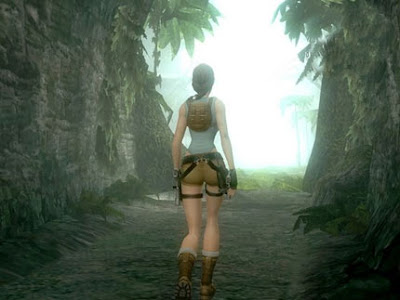NBC Universal and Warner want Eidos: Only two? Edition

According to the Daily Mail, Eidos is in discussions with NBC Universal and Warner for an investment or acquisition. UK reporting requirements differ from those in the US and announcements of potential acquisitions of public companies must be made very early. I left Eidos in February of 1999 and have not owned a share in the company since 1999 - I wish I could say I have not owned a share since 2000, but I will save the discussion for another post.
Eidos earned the tag "beleaguered" in front of its name. From about 2000 to 2005 when the game market was growing a rapid clip, Eidos market cap fell from over 1 billion dollars to under $100 million. There was a blip in the last couple of years when it looked like SCi was going to turn them around, but after running up as high as 700 million dollars, a string of quarterly losses drove market cap down to where it is today, at a slightly elevated 106 million dollars. The game publishers seem to have turned their backs on the company and are not expressing interest (or maybe not at the current price) and there are two non game participants at the table. My question is, why only two?
Disney, Warner, Universal and Paramount have all announced intentions to grow their video game businesses. Disney is furthest ahead with Warner moving up in second position and Universal and Paramount just getting out of the gate. Each studio is trying to determine an appropriate strategy and each is slightly different. The thing they all agree upon, is the business is different than anything else they are doing, and they want to enter the market intelligently. One of the key issues is determining who will build the games, followed closely by credibility in relevant markets. Eidos delivers both, at a significant discount.
If you take a look at Eidos assets, first on the franchise side, then on the development side you will see either one standing alone would justify the purchase price.
A game franchise is the most valuable asset in the game business. Unlike film, our franchises grow with subsequent release and build on existing technology. Franchises like Final Fantasy are in their 15 iteration, and as we see with Madden Football, the market will even forgive some bad installments over the years, so long as they are followed up by good ones. Take Two is a top tier publisher with one mega franchise. Activision existed for years on one, and now has only two, in Call of Duty and Guitar Hero - after the merger closes, they will be a powerhouse with World of Warcraft and Crash Bandicoot. EA has The Sims, EA Sports, Need for Speed and Medal of Honor. In most cases, a handful of franchises make a very profitable publisher. Eidos fully owns and pays no license fees on one mega franchise and 4 franchises which sold over over a million. As the Tomb Raider film rights reverted from Paramount, all of the rights are unencumbered.
Solid, proven development teams are hard to come by. Considering the rate at which independent developers are closing their doors, they are getting harder ever day. We see anecdotal support of value in acquisitions like EA's purchase of VG Holdings, parent company of super developers Pandemic and Bioware for up to 865 million dollars last year. The purchase including something like 8 or nine games in development and rights to a couple million plus selling franchises. The price is arguably supported because past game performance strongly indicates future success. Companies who developed great games in the past make great games in the future. Bioware and Pandemic developed great games. You know who else develops great games? Eidos internal teams. Among other studios, Eidos own Crystal Dynamics which originally built Legacy of Kain (3.5 million units), but recently was responsible for Tomb Raider, the company also owns IO Interactive, the company responsible for Hitman and Legacy of Kain. Not to mention Eidos Hungary who built the very innovative Battlestations Midway for a song.
Eidos is a company with great assets, poorly managed. With the right management in place the company will turn around on a dime. NBC Uni and Warner are both well positioned to make the turn around. When measured against their studio rivals, the winning bidder will instantly industry leading development capability (in the case of Warner, further enhancing Monolith) and instant street cred in the game market.
Sure there are other costs associated with restructuring, higher employee termination costs in the Europe, redundancies, and even after canceling a bunch of games, the company will need a more than 100 million dollars to execute on their plan, but what would it cost to build the franchises and development resource in the first place? How long would it take?
Don't ask me whether to buy the stock today. I don't know. I was president of the company and after I left I still sold my shares a year too early.



Comments